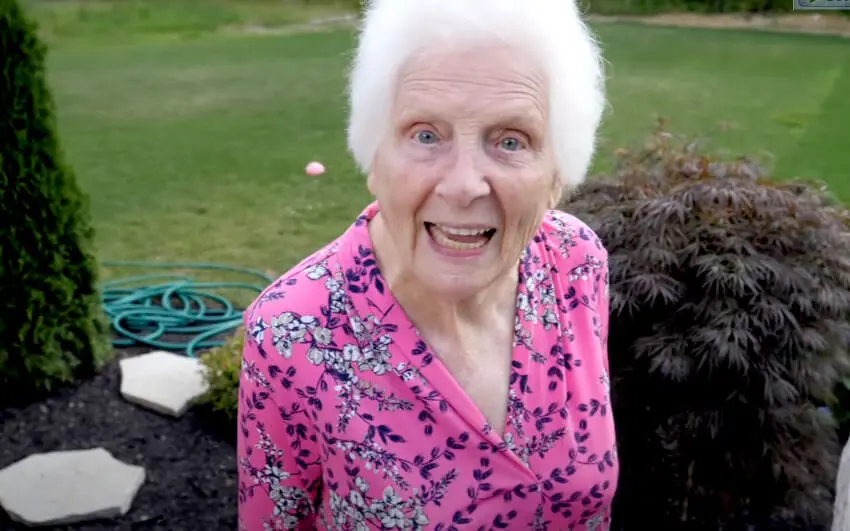Have you noticed an elderly loved one sitting with their mouth hanging open more often? While it can feel concerning, this symptom is actually quite common among seniors, especially those living with Parkinson’s disease. In fact, mouth hanging open in the elderly is one of the most recognizable signs of Parkinson’s, often linked to changes in muscle control and reduced facial movement.
This condition doesn’t just affect appearance—it can also lead to discomfort, dry mouth, and difficulty with saliva management. In this article, “Why Do Old People’s Mouths Hang Open?”, we’ll explore the medical reasons behind this symptom, its connection to Parkinson’s disease, and what families can do to help seniors manage it more comfortably.
You may read also: What is the Best Exercise for Parkinson’s Patients?

Why do dementia patients keep their mouths open?
“Mouths hanging open” is a clinical term for dementia symptoms affecting people’s ability to keep their mouths closed normally. We normally keep our mouths closed when we’re relaxed or when it’s not necessary. On the contrary, people with early signs of dementia appear to keep their mouths open a lot.
The dementia patient isn’t even conscious of it, and they can’t help; nonetheless, jaws hanging open in the elderly is one of the indicators of dementia that the patient may not be aware of, but those around them will.
For example, when you have dementia or Alzheimer’s, everything becomes overwhelming as your brain function and processing power deteriorate.
He is most likely unaware of this because his mouth is hanging open. That is why his efforts are focused on other things, such as trying to focus on you or understand what you’re saying.
At times, sensory sensations are all that get through between the two worlds. Even that, it appears, may become too much to handle as time goes on.
It’s a horrible, cruel disease that many elderly individuals suffer. However, perhaps the only saving grace in its gradual progression is that it gives those who love our time to comprehend everything.
Why do old people’s tongues hang out?
Parkinson’s disease, which affects many elderly persons, may cause mouth hanging open symptoms. As a result, the tongue can sometimes be harmed. In addition, many elderly individuals struggle with dry mouth, and tongue movement is meant to increase saliva flow.
Why are old people slack-jawed?
A slack-jawed look is common among oldsters. Chronic mouth breathing, whether young or old, is the most common cause. Nasal blockage, as well as a weak diaphragm or abdominal muscles, can induce it. Their facial muscles, for example, are relaxed, and they can’t help but open their jaws. For example, their facial muscles are relaxed, and they can’t help but keep their jaws open.
The Neanderthal jaw drop can also be caused by a slouched, forward-facing posture. Finally, poorly fitting dentures might keep more seniors open-mouthed as well.
Why do old people sleep with an open mouth?
We may notice our elderly relatives sleeping with their mouths open as caregivers or relatives. It’s just as common among the elderly as in the young. People who are accustomed to breathing via their mouths while awake are likely to sleep with their mouths open. Those who suffer from nasal or chest congestion or stuffy noses are also more prone to sleep with their mouth open. Because breathing through the nose is harder in those cases for the elderly.
Normally older adults are more prone to colds and viruses. The nasal congestion could be the cause of elderly individuals sleeping with their mouths open. Because saliva evaporates more quickly while you sleep with your mouth open, your mouth will be dryer. This can cause a painful throat, as well as tooth decay.
Conclusion
This is a common question “Why do old people’s mouths hang open?” if our loved ones suffer from Parkinson’s disease. Parkinson’s patients suffer a lot at their end of life. Alzheimer’s patients show several early signs that you or a caregiver can spot them easily. Mouths hanging open for elderly people is a common symptom among those signs.
Give your parents more time as they grow older and expect us to spend quality time with them. Then, your elderly will be happy to think they are not a burden to us, and we still love them. Consult with your physician to sort out any method to help your elder parents if possible.

I like to think positive about life. I always wanted to be a great writer, like Victor Hugo and Roman Roland, who have influenced millions of people through their books. I like to write an article on unique topics, where I try my best to provide important information that will meet the need of the people